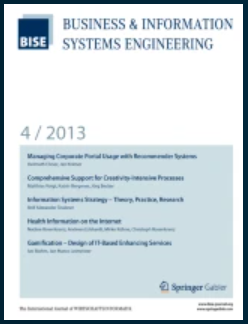猪精准养殖中深度学习实例分割模型的评价
IF 7.4
3区 管理学
Q1 COMPUTER SCIENCE, INFORMATION SYSTEMS
引用次数: 1
摘要
本文将深度学习实例分割架构detector、SOLOv2、DETR和Mask R-CNN应用于养猪精准养殖领域的数据,研究这些模型是否能够解决该领域的具体挑战。为此,我们创建了一个由731张具有高异质性和高质量分割掩码的图像组成的自定义数据集。为了进行评估,使用了计算机视觉中对实例分割模型进行基准测试的标准度量,即平均精度。结果表明,从预测精度上看,所有测试模型都可以应用于所考虑的领域。检测器的mAP为0.848,在测试集上获得了最好的结果,但也是硬件要求最高的最大模型。结果表明,增加模型复杂度和模型大小对猪实例分割的预测精度影响不大。DETR, SOLOv2和Mask R-CNN在参数数量几乎小三倍的情况下实现了与检测器相似的结果。预测的视觉评估显示了分割掩码准确性方面的质量差异。检测器总体上产生最好的掩模,而DETR在正确分割尾部区域方面具有优势。然而,可以观察到,一旦猪重叠,每个测试模型在正确分配分割掩码方面都存在问题。研究结果显示了深度学习实例分割模型在养猪精准养殖中的潜力,为该领域未来的研究奠定了基础。本文章由计算机程序翻译,如有差异,请以英文原文为准。
Evaluation of Deep Learning Instance Segmentation Models for Pig Precision Livestock Farming
In this paper, the deep learning instance segmentation architectures DetectoRS, SOLOv2, DETR and Mask R-CNN were applied to data from the field of Pig Precision Livestock Farming to investigate whether these models can address the specific challenges of this domain. For this purpose, we created a custom dataset consisting of 731 images with high heterogeneity and high-quality segmentation masks. For evaluation, the standard metric for benchmarking instance segmentation models in computer vision, the mean average precision, was used. The results show that all tested models can be applied to the considered domain in terms of prediction accuracy. With a mAP of 0.848, DetectoRS achieves the best results on the test set, but is also the largest model with the greatest hardware requirements. It turns out that increasing model complexity and size does not have a large impact on prediction accuracy for instance segmentation of pigs. DETR, SOLOv2, and Mask R-CNN achieve similar results to DetectoRS with a parameter count almost three times smaller. Visual evaluation of predictions shows quality differences in terms of accuracy of segmentation masks. DetectoRS generates the best masks overall, while DETR has advantages in correctly segmenting the tail region. However, it can be observed that each of the tested models has problems in assigning segmentation masks correctly once a pig is overlapped. The results demonstrate the potential of deep learning instance segmentation models in Pig Precision Livestock Farming and lay the foundation for future research in this area.
求助全文
通过发布文献求助,成功后即可免费获取论文全文。
去求助
来源期刊

Business & Information Systems Engineering
Computer Science-Information Systems
CiteScore
13.60
自引率
7.60%
发文量
44
审稿时长
3 months
期刊介绍:
Business & Information Systems Engineering (BISE) is a double-blind peer-reviewed journal with a primary focus on the design and utilization of information systems for social welfare. The journal aims to contribute to the understanding and advancement of information systems in ways that benefit societal well-being.
 求助内容:
求助内容: 应助结果提醒方式:
应助结果提醒方式:


